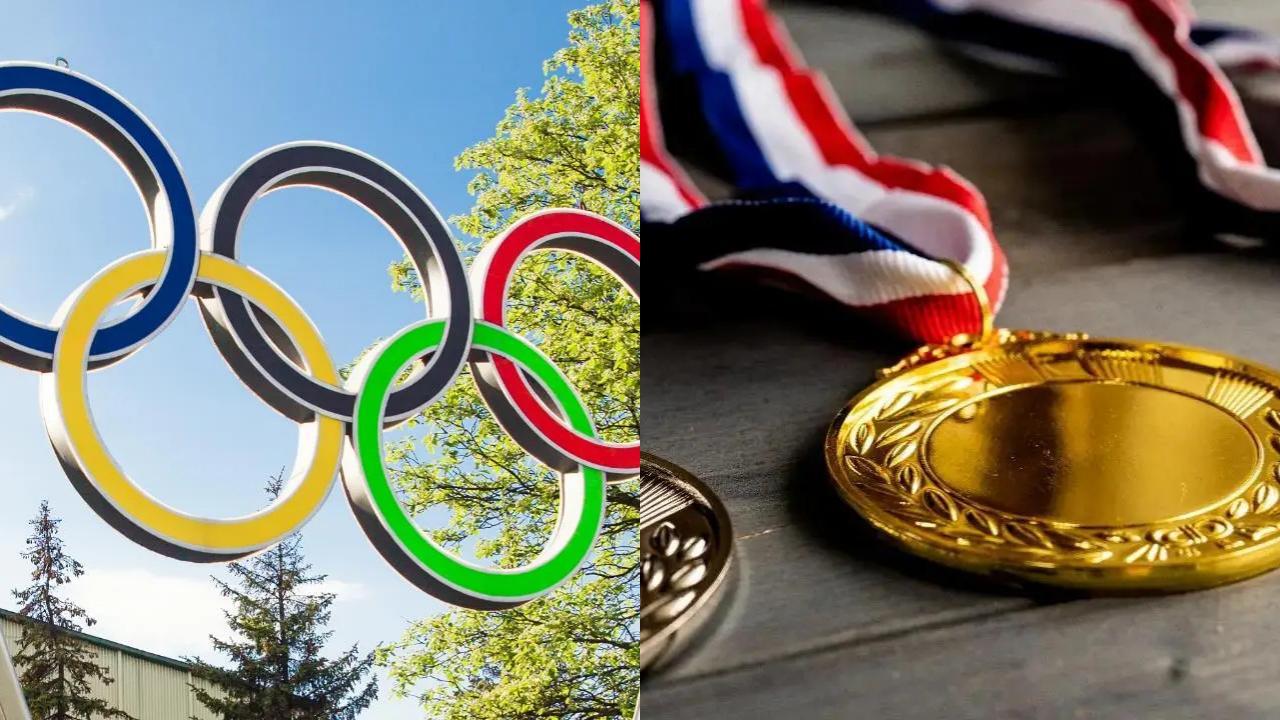On the occasion of International Olympic Day 2023, we take a look at some interesting facts and trivia about the world-renowned Olympic Games

Olympics Symbol (L), Representational Image of Medal (R) (Pic: iStock)
The Olympic Games are an indispensable part of the sports world. From bringing different athletes together to introducing unconventional sports, from celebrating friendship and cooperation to becoming a medium of fulfilling dreams, they have not only uplifted the spirit of sport but also humanity.
ADVERTISEMENT
As the world celebrates the Olympic Movement on International Olympic Day 2023, here are seven interesting facts about Olympics that you may not know.
1. First Olympic Games
The first ever Olympic Game was staged in 776 BC in Olympia, Greece. During those times, Olympics were held in honour of Zeus - the king of the Gods. Referred to as the Ancient Olympics, this era of the popular event ended in 393 AD.
It was more than 1500 years later in 1894 that Baron Pierre de Coubertin rallied the formation of the International Olympic Committee and became a pioneer of Modern Olympics. The first Modern Olympic Games were held in 1896 in Athens, Greece.
2. Olympics Symbol
The Olympics symbol consisting of five rings has a meaning. The five rings represent the five continents inhabited by people and the meeting of athletes from different parts of the world. The five colours of the rings along with the white background represents the colours of the flags of all the participating nations at the time when the symbol was conceptualised by Pierre de Coubertin.
3. Olympic Gold Medals
Contrary to what many people believe, the Olympic gold medals are not entirely made of gold in today's times.
Last time Olympic gold medals were made of solid gold was in 1912 Summer Games in Sweden. Nowadays, they usually contain only 6 grams of gold, the remaining material being silver or other recycled metals.
4. Biting the Medals Tradition
You might have come across pictures of Olympic winners posing with their medals between their teeth.
In ancient times, people would bite a metal to check its authenticity. This practice was especially used to authenticate gold coins.
Olympic medals are no longer made of gold. However, it has become a tradition among Olympians to bite their medals. Some do it to follow tradition while others strike that pose because the photographers ask them to. No real sporting significance has been found in this practice.
5. Medals for Art
Once upon a time, artists could compete in the Olympics and win medals for their art. During the early years of the Modern Olympics (1912-1948), art competitions formed a part of the event. They were divided into five categories - architecture, literature, music, painting and sculpture. The official art competitions do not exist anymore but IOA is committed to stay connected with art through the Cultural Olympiad.
6. Women in Olympics
Women competed in the Olympics for the first time at the 1900 Games in Paris. Out of 997 athletes, 22 were women.
Women participated in all the sports on the programme for the first time in 2012 at the London Games. It was in that year that all the participating countries sent female athletes for the first time.
7. Cancelled Olympic Games
Three Olympic Games have been cancelled till now - 1916 (World War I), 1940 and 1944 (World War II). Tokyo 2020 Olympics were postponed due to COVID-19 pandemic and held in 2021. However, they were not cancelled.
Also Read: International Olympic Day 2023: 10 inspiring quotes from Olympic superstars
 Subscribe today by clicking the link and stay updated with the latest news!" Click here!
Subscribe today by clicking the link and stay updated with the latest news!" Click here!







